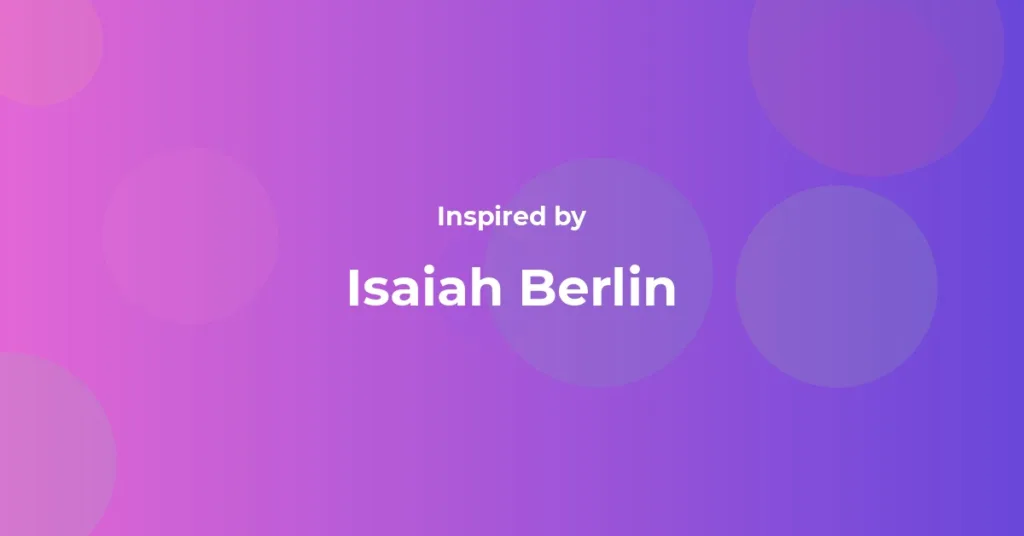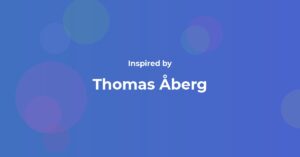
Isaiah Berlin Famous Quotes and Affirmations
Isaiah Berlin, one of the most influential political philosophers of the 20th century, left an indelible mark on intellectual history with his profound insights into liberty, pluralism, and the human condition. Born in 1909 in Riga, then part of the Russian Empire, Berlin’s life was shaped by the tumultuous events of his era, including the Russian Revolution and the rise of totalitarianism. His work, characterized by a deep commitment to individual freedom and an aversion to ideological dogmatism, continues to resonate in discussions of ethics and politics. This article explores Berlin’s most impactful ideas, his celebrated quotes, and affirmations inspired by his philosophy. Through an examination of his key contributions, including his magnum opus, and lesser-known facets of his life, we aim to capture the essence of Berlin’s enduring legacy and provide daily inspirations drawn from his thought.
Isaiah Berlin Best Quotes
Isaiah Berlin’s words have inspired generations of thinkers and scholars. Below are some of his most notable quotes, sourced directly from his published works with precise citations:
- “Liberty for wolves is death to the lambs.” – Isaiah Berlin, The Crooked Timber of Humanity (1990), p. 12
- “To understand is to perceive patterns.” – Isaiah Berlin, The Sense of Reality (1996), p. 22
- “The fundamental sense of freedom is freedom from chains, from imprisonment, from enslavement by others. The rest is extension of this sense, or else metaphor.” – Isaiah Berlin, Two Concepts of Liberty (1969), p. 121
- “Out of the crooked timber of humanity, no straight thing was ever made.” – Isaiah Berlin, The Crooked Timber of Humanity (1990), p. 19
- “Both liberty and equality are among the primary goals pursued by human beings throughout many centuries; but total liberty for all is an unattainable ideal, and so is total equality.” – Isaiah Berlin, Two Concepts of Liberty (1969), p. 125
We recommend the following books for self improvement:

365 (+1) Affirmations to Supercharge Your Life
The one-of-a-kind program contained in this affirmation book, adorned with beautiful and colorful artworks, is meticulously designed to be wholeheartedly embraced by your subconscious mind, enabling you to manifest the life you desire.
Buy on Amazon
Small Habits Revolution: 10 Steps To Transforming Your Life Through The Power Of Mini Habits
If you're frustrated by failed attempts to adopt new habits, there's good news. The solution is within your grasp. This fast-moving guide provides actionable advice that will help you to make positive, purposeful, lasting changes in your life.
Buy on Amazon
Embrace What You Can’t Change
"Embrace What You Can’t Change" by the insightful duo Ahiranta Rinpoche and Ozay Rinpoche is a transformative guide that invites readers to navigate the complexities of life with grace and acceptance.
Buy on Amazon
We Can Do Better: A Self-Help Book for People Who Are Tired of Self-Help Books
We Can Do Better isn’t another book telling you to hustle harder or wake up at 5 a.m. It’s not about fixing yourself — it’s about finally giving yourself permission to stop performing and start feeling human again.
Buy on Amazon
The P.R.I.M.E.R. Goal Setting Method
Amazon bestselling author Damon Zahariades provides a clear, concise, and actionable system for accomplishing anything you set out to do. You'll learn how to approach goal setting in a way that practically guarantees success. Along the way, you'll experience a massive boost in self-confidence. After achieving goal after goal, you'll begin to anticipate success as a foregone conclusion.
Buy on AmazonThis post contains affiliate links. As an Amazon Associate, we earn from qualifying purchases at no additional cost to you.
Famous Isaiah Berlin Aphorisms
Isaiah Berlin’s succinct and thought-provoking aphorisms encapsulate his philosophical insights. Below are verified aphorisms with exact citations from his works:
- “Few new truths have ever won their way against the resistance of established ideas save by being overstated.” – Isaiah Berlin, Political Ideas in the Romantic Age (2006), p. 45
- “The first people totalitarians destroy or silence are men of ideas and free minds.” – Isaiah Berlin, Liberty (2002), p. 94
Affirmations Inspired by Isaiah Berlin
While not direct quotes, these affirmations are inspired by Isaiah Berlin’s philosophy of liberty, pluralism, and the complexity of human values. They aim to reflect his emphasis on individual freedom and the acceptance of diverse perspectives:
- I embrace the diversity of human thought as a source of strength.
- I value my freedom to choose my own path in life.
- I recognize that not all values can be reconciled, and I accept this tension.
- I strive to understand others, even when their views differ from mine.
- I cherish the right to think independently and critically.
- I respect the complexity of human nature in all its forms.
- I seek balance between my personal liberty and the needs of others.
- I am open to changing my mind when presented with new perspectives.
- I celebrate the uniqueness of every individual’s experience.
- I reject dogma and embrace thoughtful inquiry.
- I find strength in the struggle to balance competing ideals.
- I honor the right of others to live according to their own values.
- I understand that true freedom requires responsibility.
- I am committed to protecting the freedoms of all, not just my own.
- I appreciate the beauty of a world with many truths.
- I strive to live without imposing my beliefs on others.
- I accept that perfection is unattainable, and I grow through imperfection.
- I seek to understand history to better navigate the present.
- I value dialogue as a path to mutual understanding.
- I resist the temptation to oversimplify complex issues.
- I am inspired by the resilience of the human spirit.
- I pursue knowledge as a means to freedom.
- I acknowledge the limits of my own perspective.
- I stand against oppression in all its forms.
- I find meaning in the diversity of human aspirations.
- I strive to live authentically, true to my own values.
- I embrace the challenge of living in a pluralistic world.
- I seek to learn from the past without being bound by it.
- I value empathy as a bridge between differing viewpoints.
- I am guided by reason, not blind allegiance.
- I recognize the importance of protecting individual rights.
- I find inspiration in the complexity of ethical dilemmas.
- I strive to contribute to a world of mutual respect.
- I accept that conflict between values is part of life.
- I am committed to fostering an environment of free thought.
- I seek to understand the roots of differing beliefs.
- I value the freedom to question established norms.
- I embrace the journey of self-discovery through diverse ideas.
- I stand for liberty, even when it is inconvenient.
- I appreciate the richness of human history and its lessons.
- I strive to balance personal freedom with communal good.
- I reject absolute solutions in favor of nuanced understanding.
- I am inspired by the courage to think differently.
- I value the right to express my individuality.
- I seek harmony in a world of competing ideals.
- I recognize the importance of historical context in shaping ideas.
- I strive to live with integrity in a complex world.
- I embrace the challenge of navigating moral ambiguities.
- I am committed to defending the dignity of all people.
- I find strength in the acceptance of human imperfection.
- I celebrate the endless possibilities of human thought.
Main Ideas and Achievements of Isaiah Berlin
Isaiah Berlin was a towering figure in 20th-century philosophy, renowned for his contributions to political theory, the history of ideas, and moral philosophy. His intellectual journey began in a context of upheaval, as he witnessed the Russian Revolution firsthand before his family emigrated to Britain in 1921. Educated at Oxford University, Berlin became a fellow of All Souls College and later a professor of social and political theory. His academic career was marked by a deep engagement with the ideas of liberty, pluralism, and the inherent conflicts within human values, themes that would define his life’s work.
One of Berlin’s most significant contributions is his distinction between positive and negative liberty, articulated in his seminal 1958 lecture, Two Concepts of Liberty. Negative liberty, as Berlin defined it, refers to freedom from interference by others, the absence of constraints on individual action. Positive liberty, conversely, involves self-mastery and the realization of one’s potential, often tied to collective or societal goals. Berlin argued that while both forms of liberty are valuable, they can conflict, and the pursuit of positive liberty, when taken to extremes, can justify authoritarianism. This insight was particularly relevant in the Cold War context, as Berlin critiqued the totalitarian regimes of the Soviet Union and Nazi Germany for prioritizing collective ideals over individual freedoms. His analysis remains a cornerstone of liberal thought, offering a nuanced framework for understanding the tensions inherent in democratic societies.
Berlin’s commitment to pluralism is another central pillar of his philosophy. He believed that human values are inherently diverse and often incommensurable, meaning that they cannot always be reconciled into a single, harmonious system. This view challenged the monistic tendencies of many philosophical traditions, which sought universal truths or ultimate solutions to moral dilemmas. Berlin’s pluralism is perhaps best encapsulated in his interpretation of Immanuel Kant’s phrase, “Out of the crooked timber of humanity, no straight thing was ever made,” which became the title of one of his essay collections. For Berlin, the “crooked timber” symbolized the imperfect, complex nature of human beings, whose competing desires and values resist reduction to a singular ideal. This perspective informed his critique of utopian ideologies, which he saw as dangerous in their attempt to impose a uniform vision of the good life, often at the expense of individual freedom.
In addition to his work on liberty and pluralism, Berlin made significant contributions to the history of ideas. He was deeply interested in the intellectual currents of the Enlightenment, Romanticism, and the counter-Enlightenment, exploring how these movements shaped modern political thought. His essays on thinkers such as Johann Gottfried Herder, Giambattista Vico, and Niccolò Machiavelli reveal a profound understanding of the historical contexts in which ideas emerge. Berlin’s approach was distinctive in its emphasis on empathy; he sought to understand historical figures on their own terms, immersing himself in their worldviews rather than judging them by contemporary standards. This method allowed him to illuminate the diversity of human thought and the ways in which ideas evolve over time.
Berlin’s critique of determinism and historicism also stands out among his intellectual achievements. He rejected the notion that history follows a predetermined path or that human actions are entirely shaped by inexorable laws. Instead, he emphasized the role of individual agency and the unpredictability of human behavior. This stance was particularly evident in his opposition to Marxist historical materialism, which he saw as reducing human freedom to a byproduct of economic forces. Berlin’s insistence on the importance of choice and contingency aligned with his broader commitment to individual liberty, reinforcing his belief that humans are not merely products of their circumstances but active participants in shaping their destinies.
Beyond his philosophical contributions, Berlin was a public intellectual who engaged with the pressing issues of his time. During World War II, he served in the British diplomatic service in Washington, D.C., where he wrote dispatches on American political opinion that were widely read by British policymakers, including Winston Churchill. His wartime work demonstrated his ability to bridge the gap between abstract theory and practical politics, a skill that would inform his later writings. Berlin was also a staunch defender of liberal democracy, advocating for a political system that protects individual rights while acknowledging the inevitable conflicts between competing values. His ideas influenced debates on multiculturalism, human rights, and the role of the state, resonating with policymakers and scholars alike.
Berlin’s achievements extend to his role as a communicator of complex ideas. His lectures and essays are renowned for their clarity and accessibility, making philosophy approachable to a broad audience. He had a gift for distilling intricate concepts into compelling narratives, often drawing on historical anecdotes and personal reflections to illustrate his points. This ability earned him widespread admiration and numerous honors, including a knighthood in 1957 and the Order of Merit in 1971. Berlin’s influence can be seen in the work of later philosophers and political theorists, who have built on his insights into liberty, pluralism, and the nature of value conflicts.
Another notable aspect of Berlin’s legacy is his engagement with Russian intellectual history. As a native Russian speaker who grew up in a culturally rich environment, Berlin had a unique perspective on Russian literature and philosophy. His essays on figures like Leo Tolstoy and Fyodor Dostoevsky reveal a deep appreciation for the moral and existential questions that permeate Russian thought. Berlin’s work in this area not only enriched Western understanding of Russian culture but also underscored his belief in the universal relevance of human struggles, regardless of national or historical context.
Berlin’s personal life also shaped his intellectual outlook. Having experienced displacement and the rise of oppressive regimes, he developed a visceral understanding of the importance of freedom. His encounters with leading intellectuals of his time, including Albert Einstein, Anna Akhmatova, and T.S. Eliot, further broadened his horizons, exposing him to diverse perspectives that informed his pluralistic worldview. Berlin’s ability to synthesize these influences into a coherent philosophical framework is a testament to his intellectual versatility and depth.
In summary, Isaiah Berlin’s main ideas and achievements revolve around his defense of individual liberty, his advocacy for pluralism, and his contributions to the history of ideas. His distinction between positive and negative liberty remains a foundational concept in political theory, while his critique of monism and determinism challenges us to embrace the complexity of human values. As a historian of ideas, public intellectual, and communicator, Berlin left an enduring legacy that continues to shape our understanding of freedom, morality, and the human condition. His work serves as a reminder that the pursuit of a just society requires not only the protection of rights but also the recognition of the inevitable tensions that define human life.
Magnum Opus of Isaiah Berlin
While Isaiah Berlin did not produce a single, definitive work that encapsulates his entire philosophy in the manner of a traditional magnum opus, his essay Two Concepts of Liberty, first delivered as an inaugural lecture at Oxford University in 1958 and later published in 1969 as part of a collection, stands as the most emblematic and influential of his contributions. This work, though relatively concise at approximately 57 pages in its published form, distills Berlin’s central ideas about freedom and its implications for political theory, earning it a place as his most widely recognized and frequently cited piece. It is through this lecture that Berlin’s distinction between positive and negative liberty became a cornerstone of modern political philosophy, influencing debates on individual rights, state authority, and the nature of democratic governance.
At its core, Two Concepts of Liberty addresses the fundamental question of what it means to be free. Berlin begins by delineating two distinct interpretations of liberty, which he terms “negative” and “positive.” Negative liberty, as Berlin describes it, is the absence of obstacles, barriers, or interference from others in pursuing one’s desires. It is the freedom to act without external constraints, exemplified by the right to privacy or the ability to speak without censorship. Positive liberty, on the other hand, is the freedom to achieve self-realization or self-mastery, often linked to the idea of fulfilling one’s potential or participating in a collective project. This form of liberty is associated with notions of autonomy and the pursuit of a higher purpose, sometimes tied to societal or political ideals.
Berlin’s analysis goes beyond mere definition; he explores the historical and philosophical underpinnings of these concepts. He traces negative liberty to classical liberal thinkers like John Stuart Mill and Thomas Hobbes, who emphasized the importance of protecting individual space from external coercion. Positive liberty, conversely, finds its roots in the works of philosophers like Jean-Jacques Rousseau and G.W.F. Hegel, who linked freedom to rational self-determination and the realization of a collective will. Berlin’s erudition shines through as he navigates these intellectual traditions, illustrating how each concept of liberty has shaped political thought and practice over centuries.
The brilliance of Two Concepts of Liberty lies in Berlin’s recognition that these two forms of freedom, while both valuable, are not always compatible. He argues that the pursuit of positive liberty can lead to the erosion of negative liberty, particularly when individuals or groups are coerced into conforming to a supposed “higher” ideal. Berlin cites historical examples, such as the French Revolution and the rise of totalitarian regimes in the 20th century, to demonstrate how the rhetoric of positive liberty—often framed as liberation through collective action or adherence to a universal truth—has been used to justify oppression. He warns that when positive liberty is taken to an extreme, it can result in the suppression of individual choice in the name of an abstract good, a phenomenon he observed in the Soviet Union’s claim to liberate its citizens through state control.
Berlin’s critique of positive liberty does not mean he dismisses it outright. He acknowledges that the desire for self-mastery and the pursuit of meaningful goals are integral to human life. However, he cautions against the tendency to prioritize positive liberty over negative liberty in a way that undermines personal autonomy. This tension, Berlin argues, is at the heart of many political and ethical dilemmas. His insistence on the importance of negative liberty as a safeguard against tyranny reflects his deep concern for the individual’s right to live free from arbitrary interference, a concern shaped by his own experiences of displacement and exposure to authoritarian regimes.
Another key theme in Two Concepts of Liberty is Berlin’s rejection of monism—the belief that all values can be reconciled into a single, coherent system. He contends that the conflict between positive and negative liberty is emblematic of a broader truth: human values are plural and often incommensurable. There is no ultimate solution that can harmonize all aspirations, and attempts to impose such a solution inevitably lead to the suppression of diversity. This pluralistic outlook underpins Berlin’s defense of liberal democracy, which he sees as the political system best equipped to accommodate competing values while protecting individual freedoms.
The impact of Two Concepts of Liberty on political philosophy cannot be overstated. It provided a conceptual framework for understanding the ideological battles of the Cold War, particularly the clash between Western liberal democracies and Eastern communist regimes. Berlin’s emphasis on negative liberty resonated with advocates of free-market capitalism and limited government, while his nuanced treatment of positive liberty offered a critique of collectivist ideologies without dismissing their underlying aspirations. The essay also influenced subsequent debates on multiculturalism, human rights, and social justice, as scholars and policymakers grappled with the balance between individual autonomy and communal responsibilities.
Beyond its immediate political relevance, Two Concepts of Liberty is a masterclass in philosophical writing. Berlin’s prose is lucid and engaging, weaving together historical analysis, personal reflection, and rigorous argumentation. He draws on a wide array of sources, from ancient Greek philosophy to contemporary political events, to illustrate his points, demonstrating a breadth of knowledge that is both impressive and accessible. His ability to distill complex ideas into a compelling narrative has ensured that the essay remains a staple in university curricula and a touchstone for discussions of freedom.
While Two Concepts of Liberty is often regarded as Berlin’s magnum opus, it is worth noting that his broader body of work—comprising essays, lectures, and edited collections—offers a more comprehensive view of his thought. Works like The Crooked Timber of Humanity and The Sense of Reality expand on the themes of pluralism and historical understanding introduced in the 1958 lecture. However, it is Two Concepts of Liberty that most succinctly captures Berlin’s core contribution to philosophy: the recognition that freedom is not a singular, uncontested ideal but a multifaceted concept fraught with tensions that must be navigated with care and humility.
In conclusion, Two Concepts of Liberty stands as Isaiah Berlin’s most enduring and impactful work, encapsulating his profound insights into the nature of freedom and the challenges of balancing individual rights with collective aspirations. Its relevance extends far beyond the historical context in which it was written, offering timeless lessons for understanding the complexities of human values and the importance of safeguarding liberty in all its forms. Through this essay, Berlin not only shaped the discourse of political theory but also provided a moral compass for navigating the ethical dilemmas of modern life.
Interesting Facts About Isaiah Berlin
Isaiah Berlin’s life was as rich and multifaceted as his philosophical contributions. Beyond his well-known work on liberty and pluralism, there are numerous lesser-known aspects of his personal history, intellectual pursuits, and cultural impact that illuminate the man behind the ideas. Here are some intriguing facts about Berlin that offer a deeper understanding of his character and legacy.
First, Berlin’s early life was marked by significant upheaval. Born on June 6, 1909, in Riga, which was then part of the Russian Empire (now Latvia), he experienced the chaos of the Russian Revolution as a child. His family, who were prosperous timber merchants, fled the Bolshevik regime in 1921, eventually settling in Britain. This displacement profoundly influenced Berlin’s worldview, instilling in him a lifelong appreciation for the fragility of freedom and the dangers of ideological extremism. His early exposure to political instability shaped his later critiques of totalitarianism and his defense of individual liberty.
Berlin was a polyglot with a remarkable linguistic ability, a skill that enriched his intellectual endeavors. Fluent in Russian, English, French, German, and Italian, he could engage directly with primary texts across multiple traditions. His proficiency in Russian, in particular, allowed him to explore the works of Russian thinkers like Tolstoy and Dostoevsky in their original language, contributing to his unique perspective on Russian intellectual history. This linguistic talent also facilitated his diplomatic work during World War II, when he served in the British Embassy in Washington, D.C., drafting reports on American political opinion.
During his wartime service, Berlin had a notable encounter with Winston Churchill, though under somewhat humorous circumstances. In 1943, Churchill, intrigued by Berlin’s insightful dispatches, invited him to lunch at 10 Downing Street. However, due to a mix-up, Churchill initially met with Irving Berlin, the famous American songwriter, instead of Isaiah Berlin. The confusion was eventually resolved, and Isaiah Berlin did meet Churchill, but the incident became a lighthearted anecdote in his life, illustrating the unexpected intersections of his intellectual and public roles.
Berlin’s personal connections extended to some of the most prominent figures of the 20th century. He developed a close friendship with the Russian poet Anna Akhmatova during a visit to Leningrad in 1945. Their conversations, which took place under the watchful eye of Soviet authorities, had a lasting impact on Berlin, who later wrote about Akhmatova’s courage and the oppressive atmosphere of Stalinist Russia. This meeting underscored Berlin’s commitment to defending artistic and intellectual freedom, a theme that permeates his philosophical writings.
Despite his academic prominence, Berlin was known for his modesty and aversion to self-promotion. He rarely sought to systematize his philosophy into a single, comprehensive work, preferring the essay and lecture format to explore his ideas. This approach reflected his belief in the complexity and fluidity of human thought, as well as his reluctance to impose a rigid framework on his readers. His humility also manifested in his interactions with students and colleagues at Oxford, where he was regarded as a generous mentor and conversationalist.
Berlin’s love for music was another significant, though less discussed, aspect of his life. An avid opera enthusiast, he found inspiration in the emotional depth and narrative complexity of composers like Mozart and Verdi. Music, for Berlin, was a form of expression that mirrored the pluralism he championed in philosophy—a medium where conflicting emotions and themes could coexist without resolution. His appreciation for the arts complemented his intellectual pursuits, offering a creative outlet that balanced his rigorous analytical work.
Finally, Berlin’s influence extended beyond academia into the realm of public policy and cultural discourse. He was a founding member of Wolfson College, Oxford, established in 1966 to promote graduate studies, and served as its first president. His vision for the college reflected his commitment to fostering intellectual diversity and interdisciplinary collaboration. Additionally, Berlin’s ideas on pluralism and liberty have informed discussions on multiculturalism and human rights, demonstrating the practical relevance of his philosophy in addressing contemporary challenges.
These facts collectively paint a portrait of Isaiah Berlin as not only a brilliant thinker but also a deeply human figure, shaped by personal experiences, cultural passions, and a profound empathy for others. His life story underscores the interconnectedness of history, philosophy, and individual agency, themes that lie at the heart of his intellectual legacy.
Daily Affirmations that Embody Isaiah Berlin Ideas
These daily affirmations are inspired by Isaiah Berlin’s philosophy, focusing on liberty, pluralism, and the acceptance of human complexity. They are designed to encourage reflection and personal growth in line with his ideas:
- I will honor my freedom by making thoughtful choices today.
- I embrace the diversity of opinions I encounter.
- I accept that not all conflicts can be resolved, and I find peace in this.
- I strive to protect my own liberty and that of others.
- I value the uniqueness of my perspective and those around me.
- I approach challenges with an open mind, ready to learn.
- I reject rigid dogmas in favor of nuanced understanding.
- I celebrate the complexity of human values in my daily interactions.
- I seek to balance my personal goals with respect for others’ rights.
- I am committed to fostering dialogue over division.
- I recognize the importance of history in shaping my decisions.
- I stand for individual freedom, even in difficult circumstances.
- I find strength in the acceptance of life’s inherent tensions.
- I strive to live authentically, guided by my own values.
- I appreciate the richness of a world with many truths.
Final Word on Isaiah Berlin
Isaiah Berlin remains a seminal figure in the landscape of political philosophy, whose ideas on liberty, pluralism, and the intricacies of human values continue to inspire and challenge us. His distinction between positive and negative liberty offers a timeless lens through which to examine the balance between individual autonomy and collective responsibility, while his advocacy for pluralism reminds us of the beauty and necessity of diverse perspectives in a complex world. Berlin’s life, marked by personal experiences of upheaval and a deep engagement with history, shaped a philosophy that is both profoundly humane and rigorously intellectual. His legacy endures not only in academic circles but also in the broader discourse on freedom and ethics. As we reflect on his contributions, we are encouraged to embrace the “crooked timber of humanity” in ourselves and others, striving for a society that values liberty while navigating the inevitable conflicts of human aspirations with wisdom and empathy.








